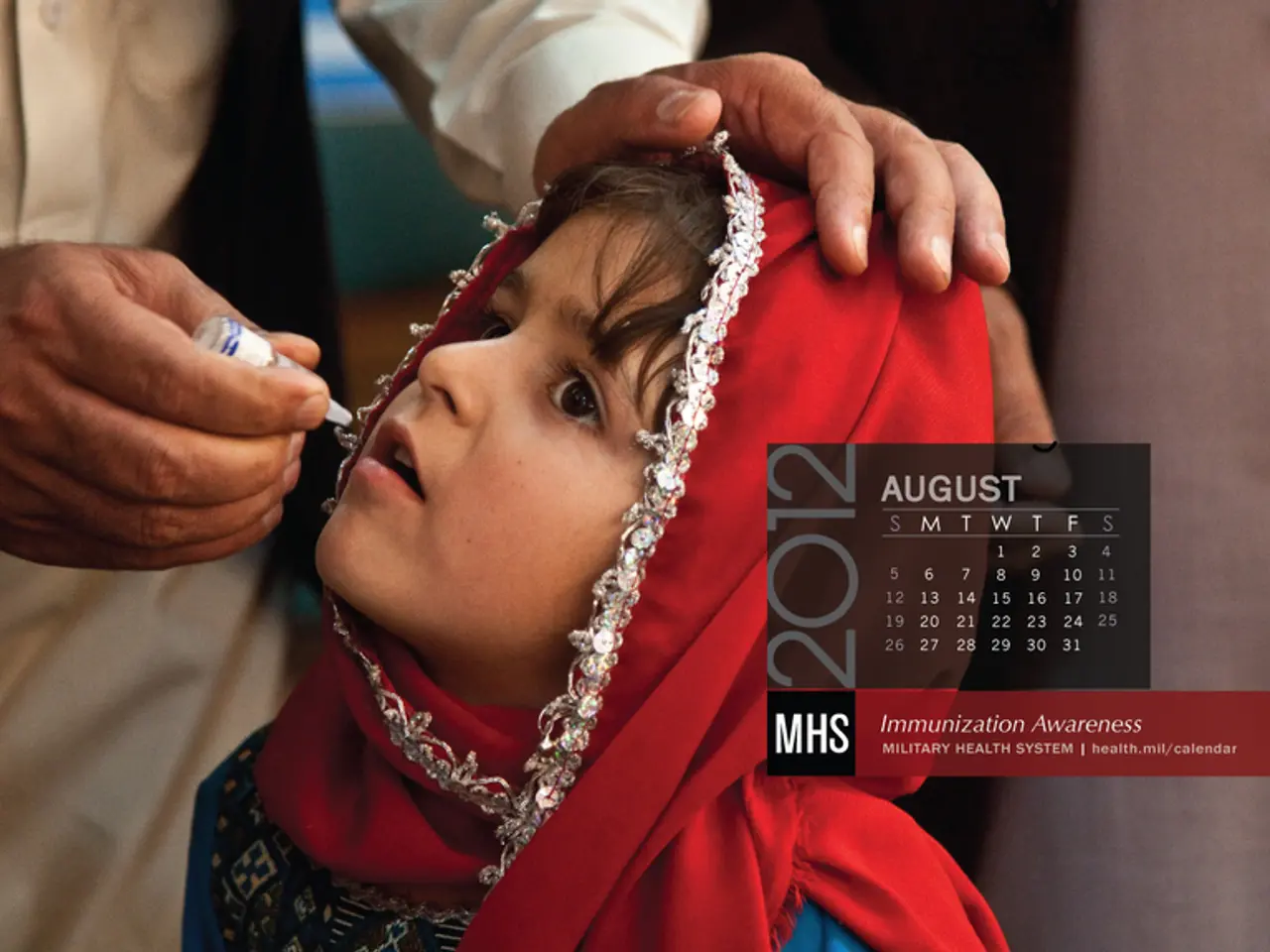In this century, the United States experiences its most severe measles outbreak.
In a concerning development, the United States has been grappling with a significant increase in measles cases, with Texas being the epicentre of the outbreak. As of the current situation in 2025, there have been at least 1,277 confirmed cases of measles across the nation, marking the highest number since 1992. Over 60% of these cases have been reported in Texas, where the outbreak originated in a rural area among a religious Menonite community with a low vaccination rate.
The Texas outbreak, despite historically high vaccination rates, is primarily due to a significant number of unvaccinated or undervaccinated individuals and pockets of vulnerability that enabled the virus to spread rapidly. Since January 2025, Texas has recorded 744 confirmed measles cases, concentrated mainly in West Texas counties like Gaines, which alone accounted for more than half the state's cases.
According to health reports, of the 750 cases reported during the outbreak, 707 were among people unvaccinated or with unknown vaccination status, 22 had one MMR dose, and 21 had two or more doses. This indicates that most infections occurred in unvaccinated populations or those with incomplete vaccination.
The measles virus, highly contagious and airborne, is capable of lingering in the air or on surfaces for up to two hours, making outbreaks easier when vaccination gaps exist. Children and others who missed vaccination or who have incomplete vaccination remain susceptible, creating susceptible clusters that allow outbreaks to occur despite overall high state vaccination coverage.
The outbreak in Texas is not an isolated incident. Neighboring countries have also registered new outbreaks in 2025. Canada, for instance, has over 3,500 cases, including one death, mostly in the province of Ontario. Meanwhile, Mexico has reported 2,600 cases and nine deaths of measles, according to the Pan American Health Organization.
The resurgence of measles serves as a stark reminder of the importance of vaccination. Measles, a highly contagious disease, was eradicated in the United States thanks to immunization. However, the current outbreak underscores the potential risks when vaccination rates decline and public trust in health authorities wanes.
Various experts have expressed concern about the underestimation of the real number of measles cases and the lack of notifications. US Health Secretary Robert Kennedy Jr. has been accused of worsening the situation by spreading false information about the measles, mumps, and rubella (MMR) vaccine.
The measles outbreak has tragic consequences. At least three people have died from measles in the United States in 2025, with two of the deaths being young children. The last measles-related child death in the United States occurred in 2003.
As the world grapples with this outbreak, it is crucial to prioritize vaccination and maintain trust in health authorities. By ensuring full vaccination coverage across all communities, we can prevent the spread of measles and other preventable diseases.
- Despite the high vaccination rates nationwide, the scientific evidence shows that the Texas measles outbreak is primarily due to unvaccinated or undervaccinated individuals and communities with lower vaccination rates, highlighting the importance of health-and-wellness measures in preventing the spread of contagious diseases.
- Over 90% of the reported measles cases in Texas have been among those with no vaccination, one dose, or incomplete vaccination, signaling the critical role of mental-health in making informed decisions about preventive medical-conditions like chronic-diseases such as measles, mumps, and rubella (MMR).
- The easy transmissions of the measles virus, which can linger in the air or on surfaces for up to two hours, demonstrate the significant impact of fitness-and-exercise on the body's immune system, as regular physical activity can help strengthen the body's defenses against chronic diseases.
- As alternative options for health management gain popularity, the use of CBD products, derived from cannabis, may be explored to help manage symptoms related to measles while recovery is underway. However, further medical research and regulations are required to ensure its safety and efficacy.




